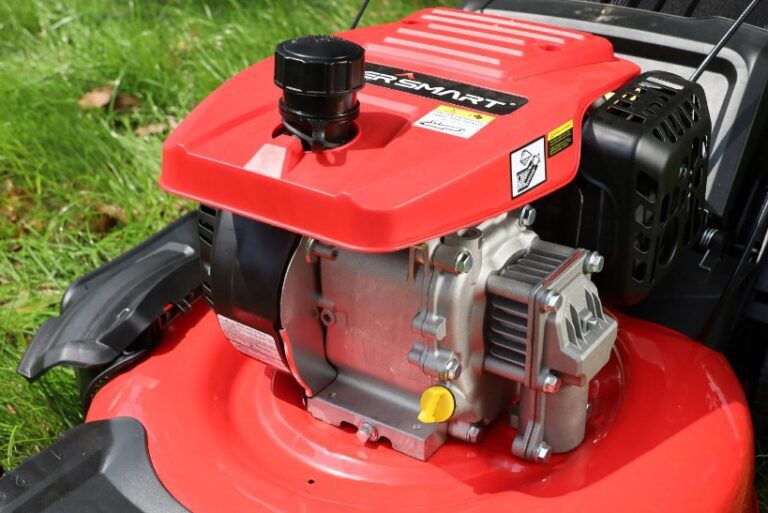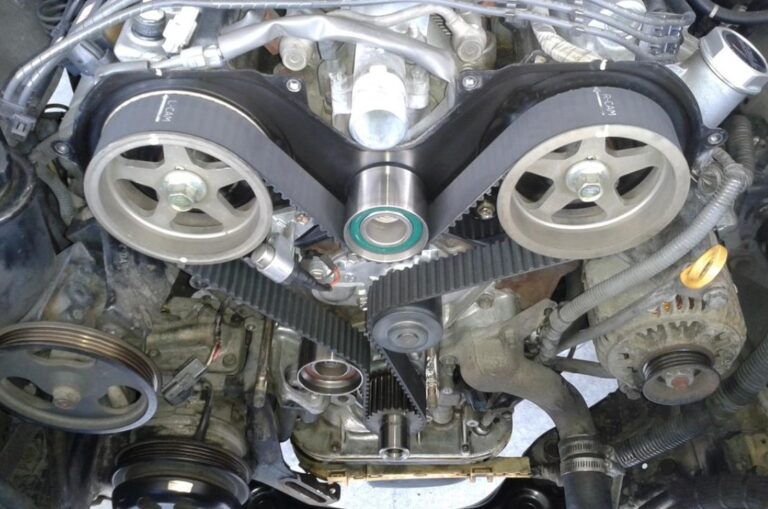How Long To Warm Up Diesel Engine In Winter? Quick Answer
Are you looking for How Long To Warm Up Diesel Engine In Winter? This question becomes crucial as temperatures drop, impacting vehicle performance. Understanding the dynamics of diesel engines in cold weather is essential for optimal maintenance and performance. In this article, we delve into the specifics of warming up diesel engines during winter months, providing expert insights and practical tips.
Key Takeaways
- Optimal warm-up time varies based on temperature and engine age.
- Modern engines require shorter warm-up times due to advanced technology.
- Proper warm-up enhances engine performance and longevity.
- Additional factors like engine oil type and vehicle usage play a significant role.
How Long To Warm Up Diesel Engine In Winter?
It varies. Typically, newer diesel engines need about 5 to 10 minutes of warming up in cold weather. However, older models or extremely low temperatures might require up to 15 minutes. Understanding your engine’s specifics and the surrounding conditions is key.

Factors Affecting Warm-Up Time
Temperature and Climate
Cold weather significantly impacts diesel engines. Below freezing temperatures, diesel fuel thickens, making it harder to start and run the engine efficiently. The warmer the climate, the shorter the warm-up time required.
Engine Age and Design
Modern diesel engines with advanced technology warm up quicker than older models. The age of your engine plays a crucial role in determining the necessary warm-up period.
Benefits of Proper Warm-Up
Warming up your diesel engine in winter isn’t just about comfort; it’s about performance and longevity. A properly warmed engine runs more efficiently, offers better fuel consumption, and reduces wear and tear.
Enhanced Performance
Warming up ensures that your engine reaches an optimal operating temperature, enhancing overall performance and efficiency.
Longevity and Health of the Engine
Adequate warm-up time reduces the stress on engine components, contributing to a longer lifespan and reduced maintenance costs.
Role of Engine Oil in Winter
Engine oil is the lifeblood of your diesel engine. In winter, choosing the right oil and understanding its behavior in cold temperatures is critical.

Importance of Choosing the Right Oil
Selecting the right viscosity and type of engine oil for winter can significantly impact your engine’s performance and warm-up time.
The behavior of Oil in Cold Temperatures
In cold weather, oil thickens, reducing its ability to lubricate the engine efficiently. This makes choosing the right oil even more crucial.
Impact of Vehicle Usage
How you use your vehicle affects the warm-up time. A vehicle that’s regularly used may require less warm-up time compared to one that’s been idle for extended periods.
Regular Use vs. Occasional Use
Regularly used vehicles maintain a residual warmth, reducing the necessary warm-up time in cold weather.
Impact of Idle Time
Vehicles left idle for long periods in cold weather may require a longer warm-up time to reach optimal operating temperatures.
Preventative Maintenance for Winter
Preparing your diesel engine for winter isn’t just about warming it up. It involves comprehensive maintenance to ensure it runs smoothly throughout the season.
Regular Checks and Services
Regularly checking and servicing your diesel engine can prevent winter-related issues and reduce warm-up time.
Winter-Specific Maintenance Tips
Using winter-grade fuel, checking the battery, and ensuring proper insulation are some of the key winter-specific maintenance tips.
How Cold Is Too Cold For A Diesel Engine?
Diesel engines can operate in a range of temperatures, but extreme cold can pose significant challenges. Generally, temperatures below -15°C (5°F) start to cause issues, such as fuel gelling and battery performance degradation.

At these temperatures, the paraffin wax in diesel fuel begins to solidify, leading to clogged fuel lines and filters, making it difficult for the engine to start and run efficiently.
Additionally, cold weather can thicken engine oil, reducing its flow and increasing wear on engine components. Manufacturers often provide specific guidelines for their engines, indicating the lowest operating temperatures and necessary precautions.
How Do You Heat A Diesel Engine In The Winter?
Heating a diesel engine in winter involves several methods to ensure smooth operation. Firstly, using a block heater, which keeps the engine warm when the vehicle is not in use, is highly effective.
It heats the engine coolant, which in turn keeps the engine at a warmer temperature, aiding in easier starts. Secondly, battery warmers can be used to maintain battery performance.
Using winter-grade diesel fuel and oil also helps, as they have additives that prevent gelling and thickening. Finally, installing fuel tank heaters can prevent fuel from gelling inside the tank.
Is It Bad To Start A Diesel In The Cold?
Starting a diesel engine in cold weather isn’t inherently bad, but it does present challenges. The key concern is that cold temperatures can lead to thickened oil and fuel gelling, which strain the engine during startup. This strain can result in increased wear and tear on engine components.

However, with proper preparation and maintenance, such as using winter-grade fuel and oil, employing block heaters, and ensuring good battery health, the risks associated with cold starts can be significantly mitigated. It’s important to warm the engine gradually and avoid revving it hard immediately after a cold start.
How To Start A Cold Diesel Engine In The Winter?
Starting a cold diesel engine in winter requires a few steps for a successful and safe ignition. First, ensure you’re using winter-grade fuel and oil. Next, if equipped, use a block heater for several hours before starting the engine; this will keep the engine warm.
Turn on the ignition and wait for the glow plugs or intake air heater to warm up, as indicated by the dashboard light (if applicable). Crank the engine, but avoid long continuous cranking.
If the engine doesn’t start, pause for a minute before trying again to prevent battery and starter motor strain. Once started, allow the engine to idle for a few minutes to warm up before driving. Avoid revving the engine excessively during this warm-up period.
Conclusion
Warming up your diesel engine in winter is vital for optimal performance and longevity. The required time varies based on several factors, including temperature, engine age, and usage patterns.
Adopting the right strategies and maintaining your vehicle properly can ensure your diesel engine runs efficiently throughout the colder months. Remember, a well-maintained engine not only warms up faster but also sustains its performance and durability over time.
Frequently Asked Questions
What is diesel fuel gelling, and how does it affect engine warm-up?
Diesel fuel gelling occurs when the temperature drops so low that the paraffin wax in diesel starts to solidify. This gelling can clog fuel filters and lines, making it difficult for the fuel to flow to the engine and thereby increasing the time needed for the engine to warm up and operate efficiently. Using winter-grade diesel or additives can help prevent this issue.
How can I maintain my diesel engine during winter?
Regular maintenance should include checking the battery, using winter-grade fuel and oil, ensuring the coolant is appropriate for lower temperatures, and inspecting the heating system. Also, check for any parts that may be more prone to wear in cold weather, like belts and hoses.
What are the signs of a diesel engine not warming up properly?
Signs include the engine running roughly, decreased fuel efficiency, increased exhaust emissions, and in some cases, the engine not reaching its normal operating temperature even after driving for a while.
Does warming up a diesel engine impact fuel efficiency?
Yes, properly warming up a diesel engine can improve fuel efficiency. A cold engine runs less efficiently, consuming more fuel. By allowing the engine to warm up, it operates more efficiently, thus improving fuel economy.
What type of engine oil is best for a diesel engine in winter?
In winter, it’s best to use engine oil with a lower viscosity. This means the oil is thinner and flows more easily, which is crucial in cold weather when oil tends to thicken. Look for oils rated for winter use, indicated by a “W” in the viscosity rating (like 5W-30).

Welcome to the exhilarating world of Matt Rex, a professional car racer turned renowned vehicle enthusiast. Immerse yourself in his captivating blog as he shares heart-pounding adventures, expert reviews, and valuable insights on cars, trucks, jets, and more. Fuel your passion for speed and discover the beauty of vehicles through Matt’s engaging stories and meticulous expertise. Join the ever-growing community of enthusiasts who find inspiration and expert advice in Matt Rex’s blog—a digital hub where the thrill of speed meets the pursuit of knowledge.







![Do You Bleed ABS Brakes With Engine Running? [Answered]](https://www.turbochaos.com/wp-content/uploads/2023/09/Do-You-Bleed-ABS-Brakes-With-Engine-Running.jpg)